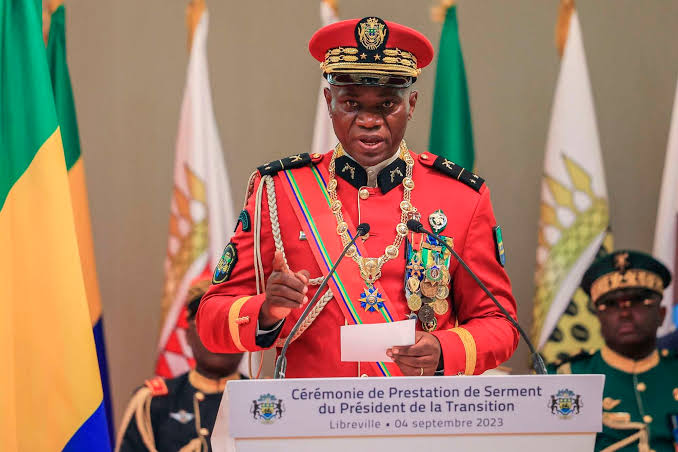
Faith Nyasuguta
The Gabonese military government, which seized power following the ousting of President Ali Bongo Ondimba, has unveiled an “indicative” timetable scheduling presidential and legislative elections for August 2025.
The announcement was made by the military power spokesman on state television Gabon Première, presenting an “official transition timetable” adopted during a Cabinet Meeting.
However, the timetable remains “indicative” and is subject to validation by a national conference in April 2024, involving vital actors from across the nation.
Ali Bongo, who succeeded his father as the leader of Gabon, saw his 14-year rule abruptly ended by military leaders on August 30, shortly after being declared the winner in a presidential election that both the army and the opposition deemed fraudulent.
The military coup cited allegations of “obviously rigged” elections and a “corrupt” power structure within the president’s family and inner circle as reasons for his removal. The coup leaders pledged to “return power to civilians” through elections after an unspecified transition period.
The primary opposition candidate, Albert Ondo Ossa, initially referred to the coup as a ‘family affair,’ suggesting a familial connection between coup leader General Brice Oligui Nguema and Bongo. Ossa later held talks with Gabon’s new leader.
In September, the African Union suspended Gabon from the continental bloc following the coup in the Central African state.
The AU’s political affairs, peace and security department said on X, formerly Twitter, the country was suspended from participating in all its activities, organs and institutions until the restoration of constitutional order.

Late last month, the United States terminated its assistance to Gabon following the August 30 coup. However, it expressed willingness to resume aid in exchange for tangible advancements towards democracy in the country.
The United States, which had already paused assistance after the military takeover, said it had formally determined that a coup took place, which under US law requires an end to non-humanitarian aid.
“We will resume our assistance alongside concrete actions by the transitional government toward establishing democratic rule,” Matthew Miller, the State Department spokesman said in a statement.
“The United States stands with the Gabonese people in their aspirations for democracy, prosperity and stability.“
In contrast to Niger, another African nation where the United States recently suspended aid due to a coup, U.S. assistance to Gabon has been relatively modest. Gabon, endowed with oil wealth and governed by the Bongo family for over fifty years, has seen limited American support.
RELATED:




